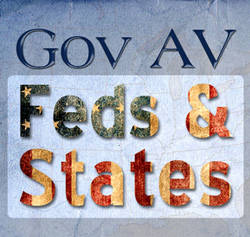Bids Gone Bad: The Protest
 Disclaimer: This represents the opinion and experience of me personally and does not represent any specific policy, law or official guidance. Understanding what happens in a bid-protest will help your firm manage its expectations on what may happen with the entire solicitation and may help you be successful working with the government.
Disclaimer: This represents the opinion and experience of me personally and does not represent any specific policy, law or official guidance. Understanding what happens in a bid-protest will help your firm manage its expectations on what may happen with the entire solicitation and may help you be successful working with the government.
No one on either side of the procurement process wants to discuss the bid protest and how it affects businesses trying to sell products and services to federal government. The main object in this article is to clearly address some great feedback I received on my inaugural column on Hiccup’s in Procurement.
The feedback received relates to the possibility of an inappropriate relationship between a participating vendor in the open procurement and the government representative handling the procurement.
Being an idealist, and someone who tries to find the good out of every bad situation, I try not to think this happens. However, I also do understand the reality of some people and their behavior, which can be professionally inappropriate, not to mention legally murky. So what do you as a vendor do, when you suspect another vendor is getting preferential treatment in an open solicitation?
Please note I am not promoting the idea that any vendor should have the attitude, “when in doubt, PROTEST.” I think the key is to educate contractors what options are available in the event you do need to protest an open procurement. It’s essential to understand that once a protest is filed, everything stops, and a new timeline begins.
First, the simple fact is if your firm doesn’t have concrete evidence, you shouldn’t be making accusations or starting protests. Protests can and most likely will be costly to all parties involved. They should not be taken lightly.
So how do you enter into a protest? Well, since I’m a technologist, not a lawyer, I wouldn’t be the best person to completely answer that question. However, if you are protesting an open procurement where the Federal Government is involved, then the Government Accountability Office (GAO) has a tremendous amount of helpful information for you, all of which can be found here: http://www.gao.gov/legal/bids/bidfaqs.html.
However, not all bid protests are done through the GAO. This is where a good lawyer can help you. There are three potential places to file a protest. The first is with the government agency itself, the second is with the GAO and the third is with the United States Court of Federal Claims (https://www.uscfc.uscourts.gov/). I can’t stress enough that a good lawyer is needed when attempting this type of action.
Looking at the GAO provided statistics, bid protests are on the rise, up 5 percent from fiscal year 2011, with a total filing of 2,475. This total represents more than just what I’ve discussed. However, one important fact is more people are at least asking for reviews on bids, and as I see anytime you have “checks and balance,” the end user is always the winner. The full GAO annual report can be found here: http://www.gao.gov/products/GAO-13-162SP
Don Palmer has 15 years in Civilian Federal service, during all of which he’s been involved with AV- and IT-related project management, including aspects of budget and procurement. Prior to joining the federal government, Don worked in telecommunications and network communications with a large outsourcing call center. Reach him at palm1004@gmail.com





